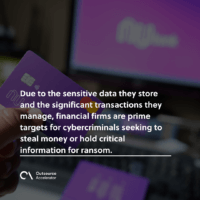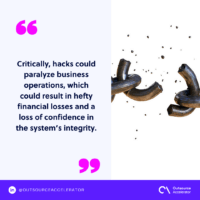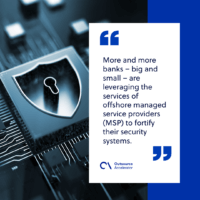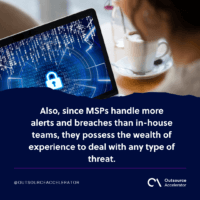Where are the cybersecurity professionals?
Banks are among the world’s most valuable institutions but are now under threat due to a worsening cybersecurity talent shortage.
In the United States, almost half a million (457,000) cybersecurity positions are unfilled, according to data from Cyberseek. The Bureau of Labor Statistics also forecasts 33% growth for “information security analyst” roles from 2023-2033 — much faster than the average for all professions. Banks are moving to digital operations, and they need more professionals to guard their systems.
Due to the sensitive data they store and the significant transactions they manage, financial firms are prime targets for cybercriminals seeking to steal money or hold critical information for ransom. Hackers have stolen credit card numbers, social security numbers, home addresses, and other personal information, which they have used for personal gains.
Breaches erode trust, which not only damages the institution’s reputation but could prompt clients to walk away. Critically, hacks could paralyze business operations, which could result in hefty financial losses and a loss of confidence in the system’s integrity.
Times are a-changing
Cybersecurity professionals are among the most sought-after occupations in the world today, yet many remain unaware of the lucrative career opportunities available in this field. Additionally, many people believe that obtaining a computer science degree or extensive technical training is essential to becoming a cybersecurity professional.
However, former U.S. National Cyber Director Harry Coker clarified that individuals can secure positions in the field even without a wealth of knowledge. Nowadays, those eager to pursue a career in cybersecurity can earn certifications online, which may lead to entry-level roles where they can gain valuable experience. The banking industry is hungry for professionals who can help protect one of the key pillars of the business world.
Rapidly changing workplace expectations have also turned the tide. Not too long ago, graduates from the top universities flocked to Wall Street to embark on a career in banking. Working in the financial capital of the world once held a certain prestige, but things have radically changed over the last few years.
As noted by Mark Nicholson, who leads Deloitte’s cyber practice for financial services: “Workplace and corporate cultural trends swing continued toward remote or hybrid work and increased work hour flexibility — both of which we know cyber professionals appreciate.”
Filling the gap
Amid these trends, financial institutions must continue transitioning to digital and expanding their services. On the flip side, cybercriminals will continue with their malicious antics and will find ways to breach the system. With the Western talent running dry, businesses must turn their attention to professionals outside these borders.
More and more banks – big and small – are leveraging the services of offshore managed service providers (MSP) to fortify their security systems. Some are even tapping virtual Chief Information Security Officer services for executive-level guidance to deal with growing threats.
Offshore teams are the perfect complement to in-house staff. Their ability to provide 24/7 protection means critical data is secure even outside business hours. Also, since MSPs handle more alerts and breaches than in-house teams, they possess the wealth of experience to deal with any type of threat. They’re also wary of the latest trends in cybersecurity and are constantly pioneering new solutions for their clients.
Banks and financial institutions are the most vital backbone of business and industry. As they take their operations and services online, they must maintain a high level of trust and integrity. Outsourced offshore cybersecurity professionals are their key collaborators in this treacherous but honorable pursuit.
The question for your business
How are you managing your cybersecurity needs?






 Independent
Independent





















